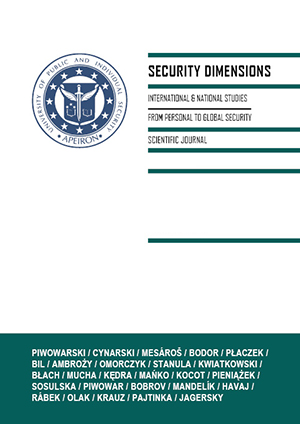THE FOUNDATIONS OF LAW AND SECURITY CULTURE IN JAPAN
THE FOUNDATIONS OF LAW AND SECURITY CULTURE IN JAPAN
Author(s): Andrzej Czop, Marek SokołowskiSubject(s): Security and defense
Published by: Wyższa Szkoła Bezpieczeństwa Publicznego i Indywidualnego “Apeiron” w Krakowie
Keywords: MORALITY;LAW;SECURITY CULTURE;PUBLIC SERVICE
Summary/Abstract: The paper shows the crucial elements of the Japanese spirit of law and security culture. Since the 1950s, the USA and European countries have witnessed global expansion and huge popularity of the phenomenon of Budō (Far-Eastern martial arts). The rules and traditions of martial arts favorably influence the field of security culture. For instance, The Seventeen-Article Constitution proposed ethical principles whose purpose was to ensure the security of the state and its residents. This document, coined by prince Shōtoku in 604, was based on both Confucianist and Buddhist teachings, which by that time were well rooted in Japan. The Constitution included a principle stating that each person was part of a group, and should live in harmony with other members of the society. Most importantly, the documents instructed that morality should precede law. This notion is very close to the idea of natural law that should be the basis for statutory law. The Articles are also considered to be the first Japanese constitution.
Journal: Security Dimensions. International and National Studies
- Issue Year: 2013
- Issue No: 10
- Page Range: 83-86
- Page Count: 4
- Language: English

